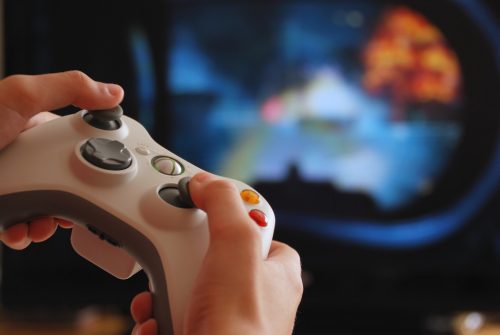
Source: news.psu.edu
It’s good and fun to do things you love doing. However, could you possibly go overboard with a simple hobby? When does a hobby progress to become an addiction? That is the big question scientists are attempting to answer regarding video game playing.
Even though video gaming has existed for nearly five decades, research about its adverse effects remains in the initial phases. Various groups have ended to various conclusions regarding whether or not playing problems must be known as addictions.
The World Health Organization included ‘gaming disorders’ in the 2018 edition of its medical reference book. However, the American Psychiatry Association manual, which is the DSM-5, did not. Until today, gambling is the single activity included in the list of possible addictions. The statistical manual of mental health conditions criteria regarding video game addiction is quite the same as the criteria used for substance abuse disorder. In both circumstances, the individual needs more basis as time continues and becomes sad and annoying when unable to avail it. Individuals addicted to video game playing can even go through withdrawal symptoms.
Warning Signs
The Diagnostic and Statistical Manual of Mental Disorders – 5 does have a segment that aids doctors and other individuals in increasing awareness about video game warning signs. These issues can occur whether you play video games offline or online.
Here are some symptoms to watch out for in you or someone you know – your child, spouse, or significant other. You must present with five or more of these indications within a year to be considered officially having the problem, as stated by the criteria suggested in the DSM-5.
- Feeling moody and unpleasant when you are not able to play
- Always thinking about playing video games almost, if not all, of the time
- Having issues at home, at work, or in school due to persistent video game playing
- Pushing yourself to play amidst many issues and problems
- Having to spend a lot of time playing to feel good
- Can’t control gaming impulses
- Not remembering to do other activities that you previously loved doing
- Using video games to alleviate unpleasant feelings and bad moods.

Source: sciencenewsforstudents.org
Certainly, not everyone who plays video games often has an issue with gaming. Several experts agree that it is damaging to label individuals who could be just very eager to learn more about gaming. They all concur that the number of players meeting the recommended video game addiction standards is quite small. It is projected to be around 1% to 9% of all video gamers, children and adults alike. It is also documented that gaming is more prevalent in males than females.
It could be of more help to begin by asking yourself questions: Does your hobby interfere with other pertinent things in your life, like your profession, education, or relationships? Could you be using video games as an excuse to escape a more serious problem, such as depression? Do you think you have crossed the line between the need to play and the love of playing?
It can be difficult to perceive a problem in yourself. The number of times you spend playing video games might seem okay to you, but if others close to you have observed that it’s way too much, now may be the time to cut back or quit.
If you are a mom or dad worried about the time your child spends playing video games, look at how efficiently they are doing at home, school, or with peers. Getting high grades and great relationships with parents indicate that a child’s video gaming hobby is unlikely to become an issue.
Seeking Help
Ask help from your therapist or primary mental health provider – or your family pediatrician if the individual of concern is your daughter or son – the very moment that you think your child’s gaming is getting messy or has gone too far.
Studies about managing video game addiction are also in their initial phases. Cognitive-behavioral therapy or CBT is a particular therapy regimen that can assist with gaming management. This mental health therapy educates people on substituting thought patterns regarding video game addiction to help alter behavior.
If your child is a persistent gamer, a therapist could show you how to restrict your child’s playing period if you have trouble refusing. One study revealed that making you a part of your child’s therapy would increase its effectiveness.

Source: thewestsidestory.net
Counteracting A Gaming Problem
To be able to manage your child’s time spent playing games, try these strategies for kids and adults alike:
- Set rules on keeping your child’s phones, tablets, and other gadgets outside the room so he will not be tempted to play throughout the night.
- Set a daily time limit for playing and let him practice sticking with these limits.
- Do other hobbies or routines daily, including sports and exercise. This decreases the health hazards of playing too hard and sitting for long periods.
Conclusion
Nobody knows whether or not particular forms of gaming have a higher likelihood of leading to gaming addiction. In the meantime, be certain that your child is playing age-appropriate games.